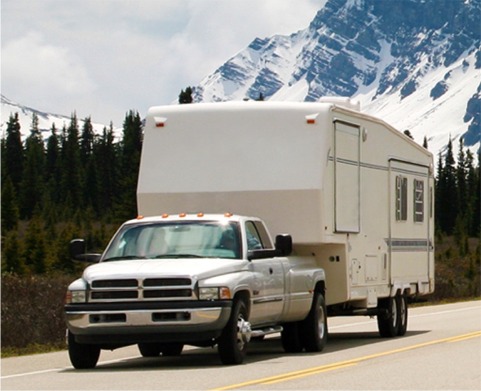 Making sure you can safely stop when towing is important, not only for yourself, but for the others sharing the road with you. When towing a trailer behind your car, this is accomplished through the use of a trailer brake controller. Every state has its own laws regarding what kind of braking system is required for towing. If you are unsure what the braking requirements are for the states you’ll be traveling through, AAA lists them by state or Canadian province on their website’s Digest of Motor Laws. While different trailer brake controllers are all made to accomplish a similar task, there are variations.
Time delayed or proportional are the two main types of operation handled by trailer brake controllers. Each has their own advantages and disadvantages. Time delay controllers implement a preset power level that is defined by the weight of your trailer plus whatever is stored inside. As the name suggests, the braking power is applied after a preset time delay. These types of controllers are not as costly as proportional units, making them a more inexpensive solution for those who rarely need to tow a trailer. Another advantage for those who rarely tow is that installation is typically more straightforward than with proportional controllers, as they can be placed in almost any position. The
Reese Brakeman is a time actuated brake controller that handles 1 to 2 axle trailers. It has plug and play capability, and features an LED output indicator. The manual override function can be used when the braking needs to be applied at a more gradual pace.
Proportional brake controllers make use of sensor technology that will slow down the trailer at the same rate as your tow vehicle. This differs from time delay units in which the braking power applied is the same no matter how fast the tow vehicle stops. Because of this, using a proportional controller allows both the trailer’s brakes and tow vehicle’s brakes to wear more evenly. Slowing the trailer down at the same rate as the tow vehicle also makes it easier if you need to stop suddenly. Proportional models are great for those who tow trailers on a regular basis, mainly due to the cost and installation process. The
Hayes G2 Brake Boss is a proportional unit that works for up to 8 electric brakes. It has an audio signal alert in the event of a connection issue, as well as a manual override to provide full braking power in an emergency. Another example is the Tekonsha Prodigy P2, which supports 1 to 4 axles and works with electric over hydraulic trailer brakes. This unit can adapt to the terrain while driving, so no leveling adjustments are needed. It continuously runs diagnostic checks, and can also operate when the vehicle is in reverse.
Keep in mind that these types of trailer brake controllers are designed for electric brakes, rather than pneumatic or hydraulic systems.
Wiring harnesses for various brake controllers are also available, and are typically designed for certain car makes and models. Many of them feature fit charts to help you select which one is compatible with your vehicle.
A Look at Trailer Brake Controllers
|